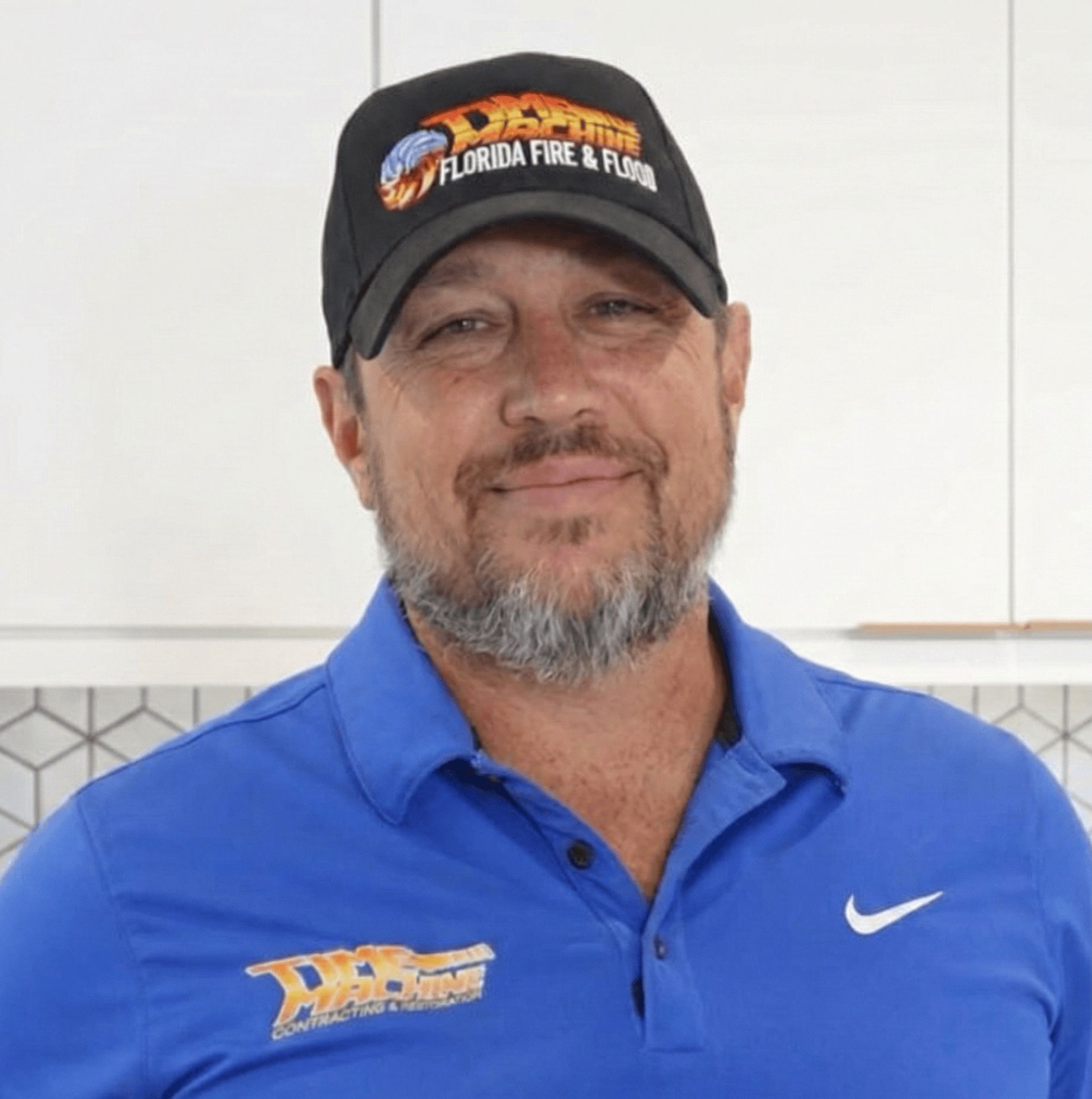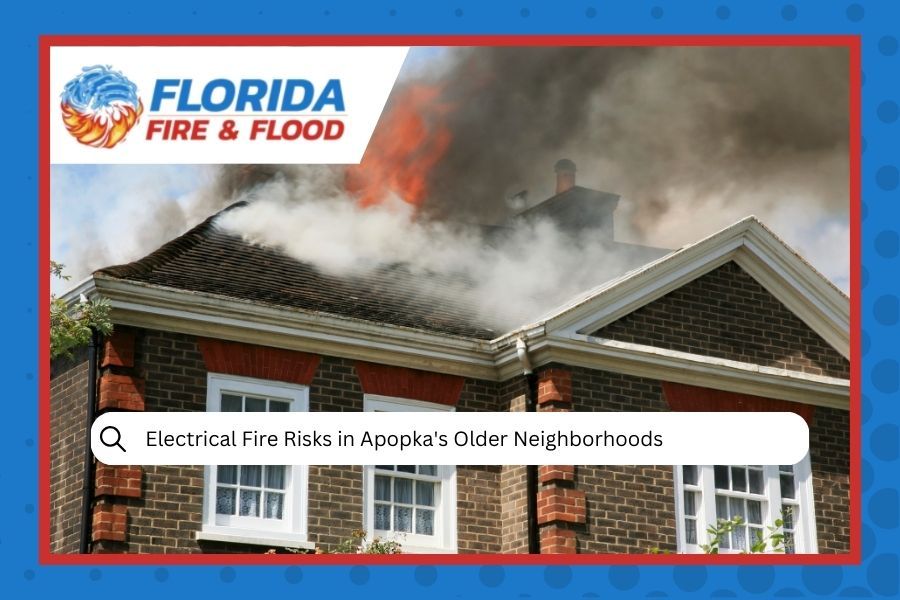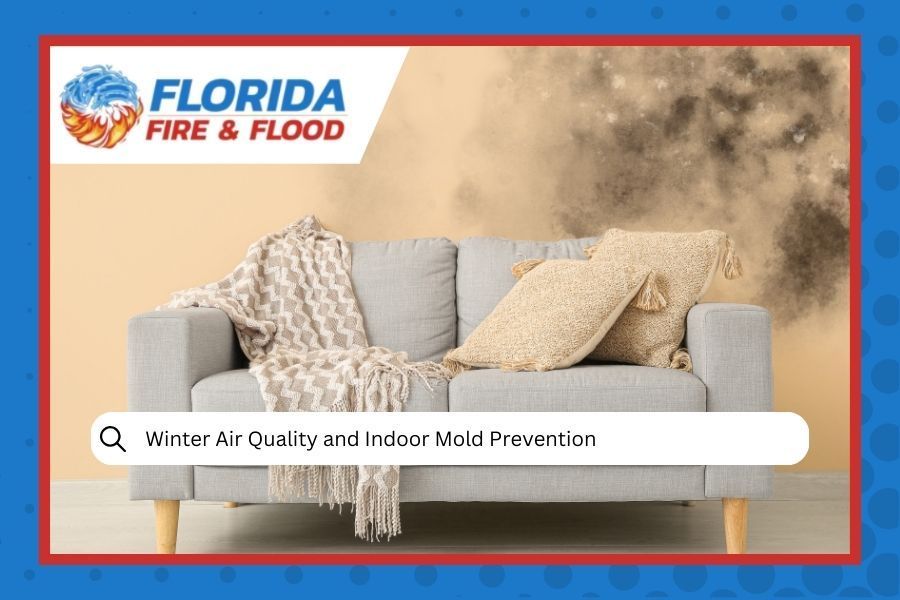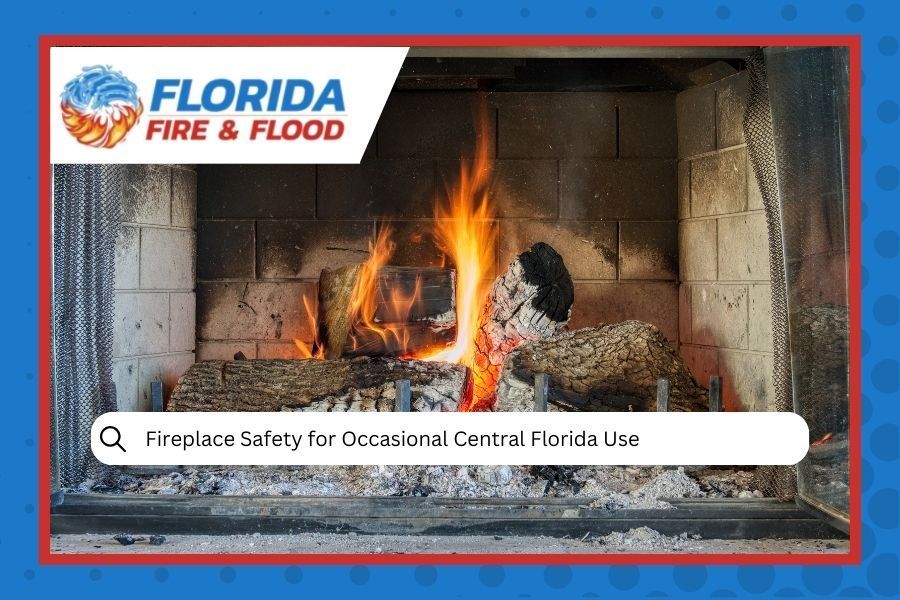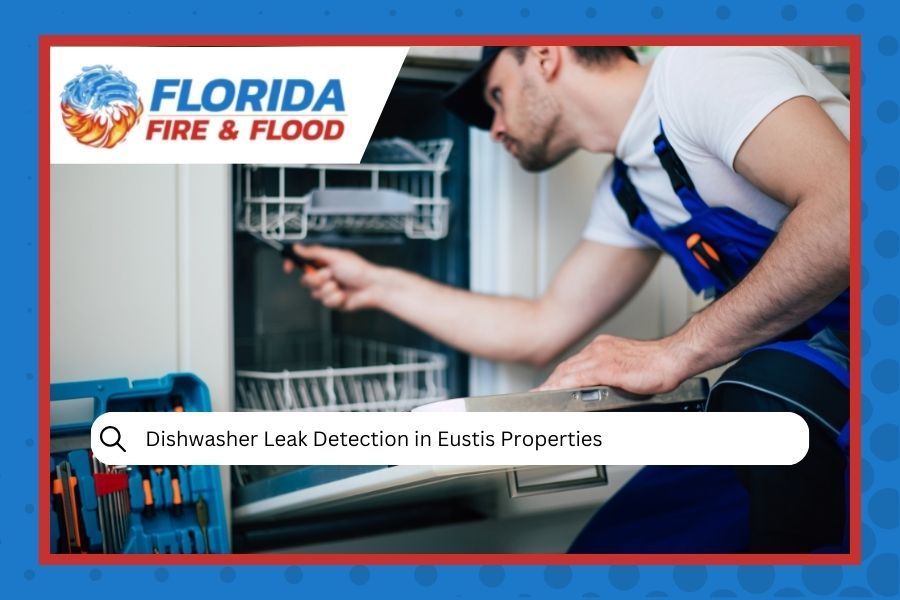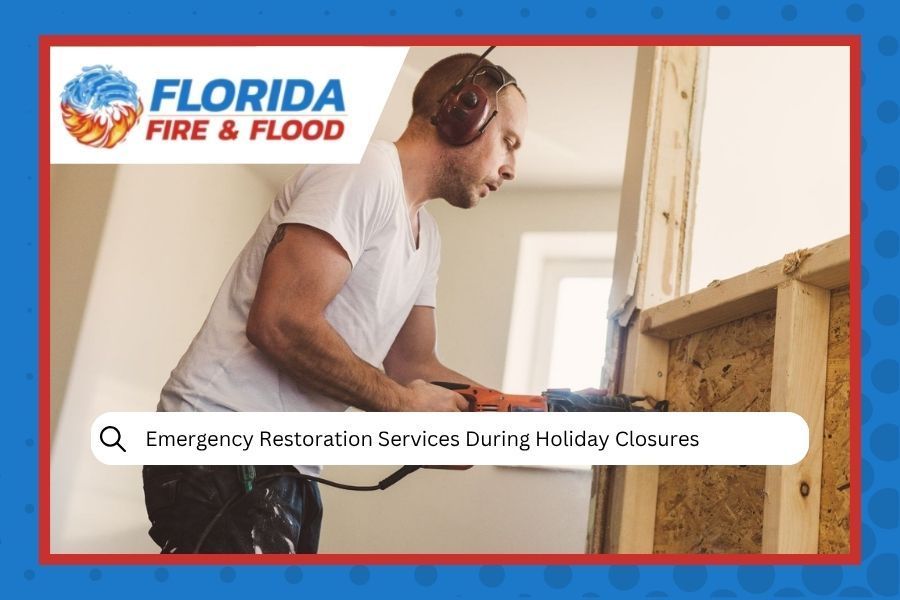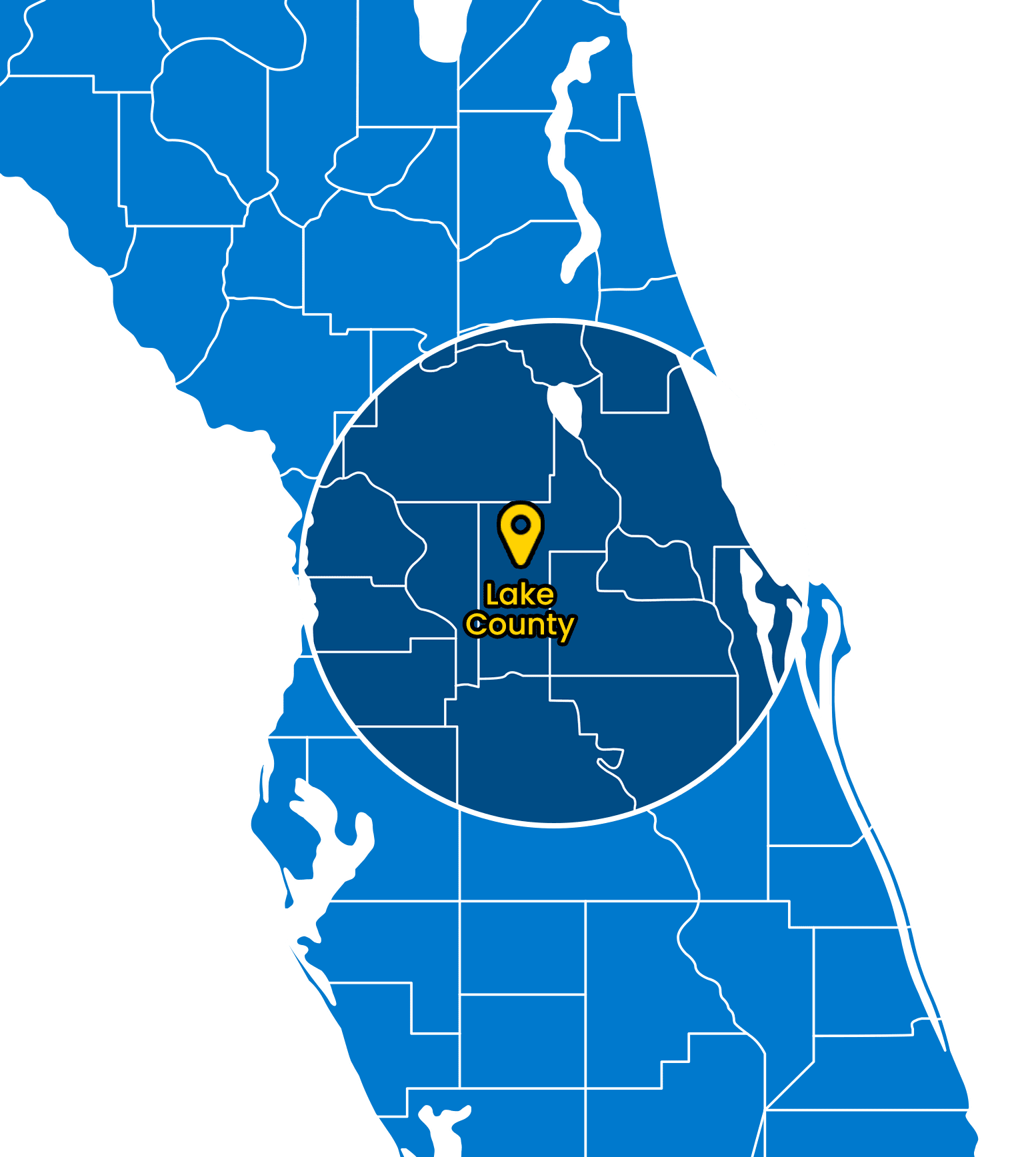AMRT - Applied Microbial Technician I, (Mold Remediation)
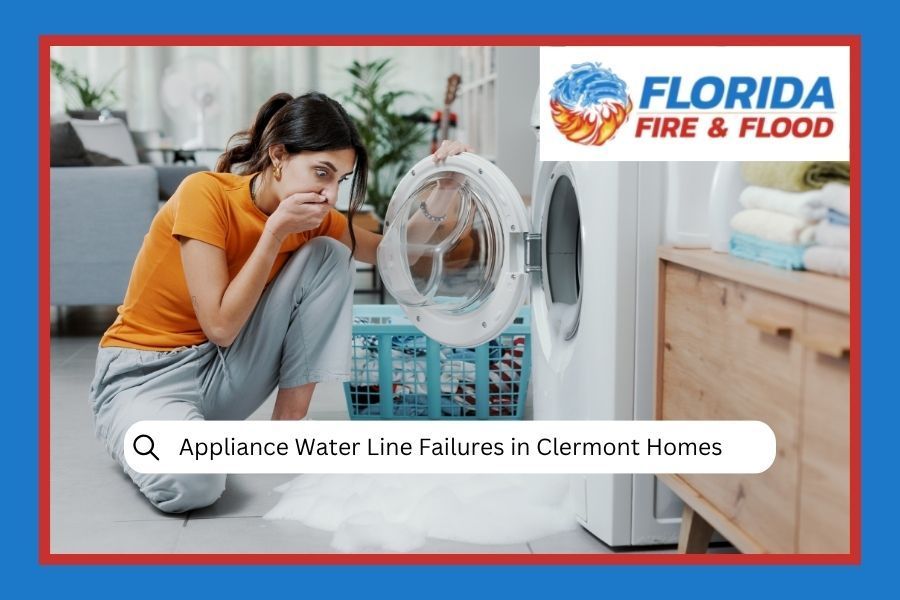
Jump To:
- The Usual Suspects: Which Appliances Cause the Most Water Line Problems
- Why Appliance Water Lines Fail in Clermont Homes
- Signs Your Appliance Water Lines Might Be Failing
- What to Do When an Appliance Water Line Fails
- Preventing Future Appliance Water Line Failures
- The Hidden Costs of Ignoring Small Leaks
- Why Clermont Homeowners Choose Florida Fire & Flood
- Frequently Asked Questions
You're doing laundry on a regular Tuesday afternoon when you hear it: a hissing sound followed by the unmistakable splash of water hitting your floor. Your washing machine's water line has just failed, and now you're standing in a growing puddle wondering how a simple load of towels turned into an emergency. If this sounds familiar, you're not alone. Appliance water line failures are one of the most common causes of water damage in Clermont homes, and they always seem to happen at the worst possible time.
The thing is, these little hoses and connections don't get much attention until they fail. They sit behind your appliances, quietly doing their job for years, until one day they don't. And when they go, they can release a surprising amount of water in a very short time. We've seen everything from slow drips that go unnoticed for weeks to full-blown floods that dump gallons per minute onto floors, into walls, and sometimes even through ceilings.
Let's talk about why these failures happen, which appliances are the biggest culprits, and what you can actually do about it before you're ankle-deep in water.
The Usual Suspects: Which Appliances Cause the Most Water Line Problems
Not all appliances are created equal when it comes to water line failures. Some are way more likely to cause problems than others, and it usually comes down to how often they're used, where they're located, and how old their connections are.
Washing Machines: The Number One Offender
Washing machines top the list, and it's not even close. They cycle water on and off constantly, their hoses are under steady pressure, and many homes in Central Florida are still using the original rubber hoses that came with machines installed years ago. Those rubber hoses get brittle over time, especially in our heat and humidity. We've responded to more washing machine floods than we can count, and the damage can be extensive because these appliances often sit in interior rooms or closets where water can spread quickly to other areas.
Refrigerators with Ice Makers and Water Dispensers
That little plastic line running to the back of your fridge? It's more fragile than you think. Refrigerator water lines can crack, get pinched when you move the appliance, or simply wear out at the connection points. The tricky part is that these leaks often start small and go unnoticed until you spot water damage on the floor or wall behind the fridge. By then, you might already have moisture issues or even early mold growth.
Dishwashers
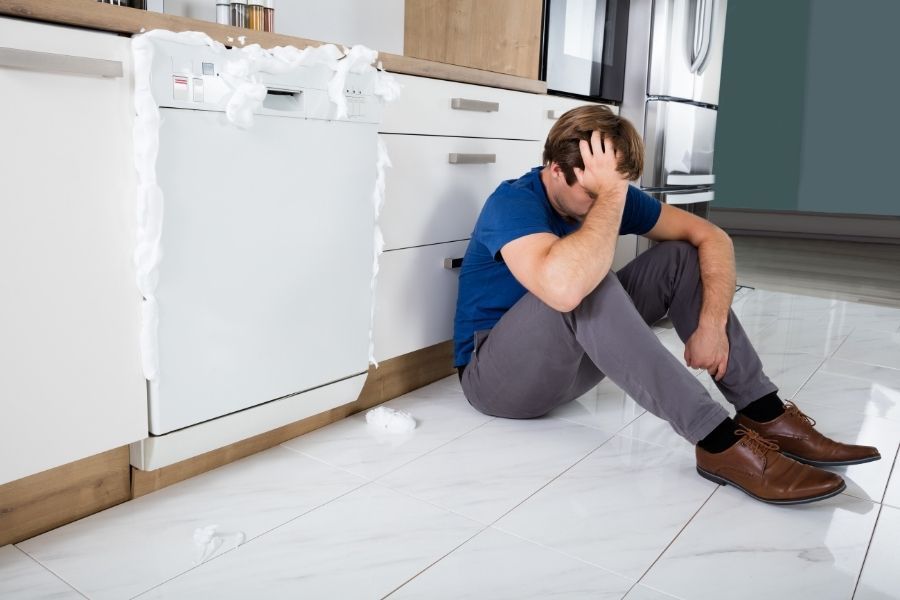
Dishwashers have both supply lines bringing water in and drain lines taking water out. Either one can fail. The supply line issues are similar to washing machines, just on a smaller scale. Drain line problems are often related to clogs or disconnections, which can lead to water backing up and spilling out from under the appliance. Because dishwashers are built into your cabinetry, damage can affect your kitchen cabinets and flooring before you even realize there's a problem.
Appliance Water Line Failure: By the Numbers
Dealing with Appliance Water Damage in Clermont?
Our team at Florida Fire & Flood responds fast to water emergencies throughout Central Florida. We're available 24/7 because we know water damage doesn't wait for business hours.
Get Your Free ConsultationWhy Appliance Water Lines Fail in Clermont Homes
Understanding why these failures happen can help you prevent them. It's not just bad luck or old age, though those certainly play a role. Several factors specific to our area make appliance water line failures more common in Clermont.
Age and Material Degradation
Rubber hoses were standard for decades, and many are still in use. The problem is that rubber degrades over time. It gets brittle, develops tiny cracks, and eventually bursts or starts leaking at the connections. Even if your appliance is relatively new, if it came with rubber hoses, they're already on borrowed time. The Florida heat accelerates this process, especially in garages, laundry rooms, or anywhere without great climate control.
Water Pressure Issues
High water pressure puts extra stress on hoses and connections. Many homes in Clermont have water pressure that's higher than recommended for standard appliance hoses. Over time, this constant pressure weakens the hose material and can cause connections to fail. If you've ever noticed your washing machine hoses feel hard or bulged, that's pressure damage in action.
Installation Problems and Wear Points
Sometimes the issue isn't the hose itself but how it was installed. Hoses that are kinked, pinched, or rubbing against sharp edges are more likely to fail. We see this a lot when appliances have been moved for cleaning or repairs and weren't reconnected carefully. Those wear points become weak spots that eventually give out.
Florida's Hard Water
Our water in Central Florida has a high mineral content. Over time, these minerals build up inside hoses and at connection points, causing corrosion and reducing water flow. This buildup can weaken the hose material from the inside out and make connections more prone to leaking.
Signs Your Appliance Water Lines Might Be Failing
Most water line failures don't happen without warning. The trick is knowing what to look for before you have a full-blown emergency on your hands. Here are the red flags we tell Clermont homeowners to watch for:
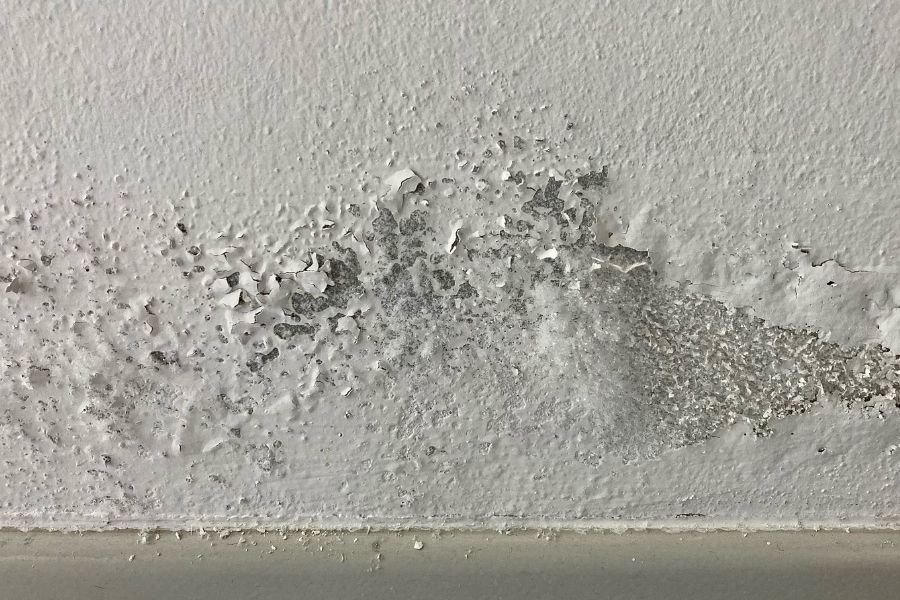
Visible Hose Damage
Pull your appliances away from the wall every few months and actually look at the hoses. Check for cracks, bulges, brittleness, or any discoloration. If the hose feels hard instead of flexible, or if you can see the braided material through worn spots, it's time for a replacement. Don't wait.
Moisture or Water Stains
Unexplained moisture around or behind appliances is never normal. Even small amounts of water on the floor, water stains on walls or baseboards, or that musty smell that seems to come from nowhere can indicate a slow leak. These small leaks often lead to bigger problems because they go undetected until significant damage has occurred. If you notice any of these signs, you might want to learn more about how long it takes for water damage to dry and why quick action matters.
Decreased Water Flow or Pressure
If your dishwasher isn't cleaning as well as it used to, or your washing machine seems to be filling more slowly, it could be a sign of buildup or partial blockage in the water line. This might not seem like an emergency, but it indicates that your hoses are aging and could fail soon.
Unusual Sounds
Hissing, dripping, or gurgling sounds coming from behind appliances usually mean water is going somewhere it shouldn't. Don't ignore strange noises. They're often the only warning you'll get before a major leak starts.
| Hose Type | Lifespan | Cost | Risk Level | Best For |
|---|---|---|---|---|
| Rubber Hoses | 3-5 years | $10-15 | High | Short-term/budget |
| Reinforced Rubber | 5-7 years | $15-20 | Moderate | Standard replacement |
| Stainless Steel Braided | 8-10 years | $20-35 | Low | Best protection |
| Auto-Shutoff Hoses | 8-10 years | $40-60 | Very Low | Maximum protection |
What to Do When an Appliance Water Line Fails
Let's say it happens. You've got water coming from behind your washing machine or pooling under your refrigerator. What do you do first?
Shut Off the Water Immediately
Every appliance with a water line should have a shutoff valve nearby. For washing machines, it's usually behind the machine where the hoses connect to the wall. For refrigerators, it might be under the sink or behind the fridge. Find these valves now, before you need them. When a leak happens, turn off the water at the appliance first. If you can't find the valve or it's not working, shut off your home's main water supply.
Move to Damage Control
Once the water is off, start removing as much standing water as you can with towels, a wet vac, or a mop. The faster you get water up, the less damage you'll have. Move any furniture or belongings out of the affected area. If water has spread to carpeted areas, pull up the carpet if possible to dry the pad and subfloor underneath.
Call in the Professionals
Even if you've gotten the visible water cleaned up, there's likely moisture in places you can't see: inside walls, under flooring, in cabinets. This hidden moisture is where the real problems start. Our team at Florida Fire & Flood uses specialized equipment to detect moisture you can't see and drying equipment that goes way beyond fans and dehumidifiers. We can assess the full extent of the damage and create a plan to get your home properly dried out and restored. You can reach us at (352) 644-7969 anytime, day or night.
Need immediate help with water damage? Contact Us Now
Document Everything
Take photos and videos of the damage before you start cleanup. Document the source of the leak if you can see it. Keep receipts for any emergency supplies you buy. This documentation will be important for your insurance claim. Speaking of insurance, give your insurance company a call sooner rather than later. Most policies require prompt notification of water damage, and understanding water damage restoration costs can help you navigate those conversations.
Preventing Future Appliance Water Line Failures
The best water damage is the kind that never happens. Here's what actually works to prevent appliance water line failures in Clermont homes.
Appliance Water Line Prevention Checklist
- Replace rubber hoses with stainless steel braided hoses on washing machines
- Check all visible water lines every 3-6 months for wear, cracks, or bulges
- Ensure adequate clearance between appliances and walls to prevent kinking
- Install water leak detectors near major appliances
- Consider installing an automatic water shutoff system for your home
- Test your home's water pressure and install a pressure regulator if it exceeds 80 PSI
- Replace appliance water lines every 5-7 years regardless of visible condition
- Turn off water supply valves to appliances when going on vacation
- Schedule annual appliance maintenance inspections
- Keep the area around appliances clean and dry to spot leaks early
Upgrade to Quality Hoses
Stainless steel braided hoses are the gold standard. They cost more than rubber hoses, about $20-$30 per pair versus $10 for rubber, but they last much longer and are far less likely to burst. For washing machines especially, this is one of the best investments you can make. While you're at it, make sure the hoses are long enough to reach without stretching or kinking.
Install Leak Detection Devices
Modern leak detectors are inexpensive and can save you thousands in water damage. These small devices sit on the floor near your appliances and sound an alarm if they detect moisture. Some newer models can even send alerts to your phone and automatically shut off your home's water supply. For less than $100, you can have peace of mind knowing you'll be alerted to problems before they become disasters.
Regular Maintenance and Inspections
According to the American Red Cross , regular home maintenance can prevent many water damage incidents. The National Fire Protection Association also emphasizes the importance of routine appliance inspections as part of comprehensive home safety. Make it a habit to check your appliance water lines at least twice a year. Look for signs of wear, test shutoff valves to make sure they work, and replace hoses on a schedule rather than waiting for them to fail. If you're not comfortable doing this yourself, many plumbers offer annual home water system inspections that include appliance connections.
Consider a Whole-Home Approach
If your home's water pressure is high, installing a pressure-reducing valve can protect not just your appliance hoses but your entire plumbing system. If you have an older home with plumbing that's seen better days, upgrading the water lines to your appliances during a renovation can prevent problems down the road.
Protect Your Clermont Home from Water Damage
Don't wait for a water line failure to happen. Our team can inspect your appliances and provide recommendations to prevent costly damage. We're here to help keep your home safe.
Learn About Our ServicesThe Hidden Costs of Ignoring Small Leaks
Sometimes homeowners discover a small leak and think, "Well, it's not that bad. I'll deal with it later." This is almost always a mistake. Small leaks rarely stay small, and even when they do, the damage adds up over time.
A drip that seems insignificant can release several gallons per day. Over weeks or months, that's enough moisture to create ideal conditions for mold growth, rot wood framing, and damage flooring and drywall. We've seen situations where a small refrigerator leak that went unnoticed for six months resulted in thousands in mold remediation and structural repairs. If you're already noticing signs of moisture problems, it's worth understanding early warning signs of mold growth so you can catch issues before they escalate.
The cost to replace a water line hose? Maybe $50 with a plumber's help. The cost to ignore it? Potentially thousands in water damage repairs, mold remediation, and increased insurance premiums. The math isn't hard.
Why Clermont Homeowners Choose Florida Fire & Flood for Water Damage Restoration
When you're dealing with water damage from a failed appliance line, you need people who understand the urgency and have the expertise to do the job right the first time. Our team at Florida Fire & Flood has been helping Clermont homeowners with water damage restoration for years. We're IICRC certified, we work directly with your insurance company so you don't have to play middleman, and we're available 24/7 because water emergencies don't keep business hours.
We're not just a restoration company. We're your neighbors here in Central Florida. We know the specific challenges our climate and water quality create. We know that when your washing machine floods your laundry room at 2 AM on a Sunday, you need someone who will answer the phone and actually show up. That's what we do.
We handle everything from the initial water extraction to complete reconstruction if needed. Our process includes moisture detection with specialized equipment, structural drying, antimicrobial treatment, and full restoration to get your home back to pre-loss condition. We've seen every type of appliance water damage imaginable, and we have the experience to handle whatever we find.
Final Thoughts on Protecting Your Clermont Home
Appliance water line failures might seem like a random stroke of bad luck, but they're actually one of the most preventable types of water damage. The key is being proactive instead of reactive. Check your hoses, upgrade to better materials, install leak detectors, and don't ignore warning signs.
And if the worst happens and you find yourself standing in water from a failed appliance line, don't panic. Shut off the water, start cleanup, and call us at Florida Fire & Flood. We'll be there fast to assess the damage, dry out your home properly, and handle all the details with your insurance company.
Your home is probably your biggest investment. Protecting it from water damage doesn't have to be complicated or expensive. A little prevention and some awareness go a long way. And when prevention isn't enough, we're here to help make it right.
For immediate assistance with water damage in Clermont or anywhere in Central Florida, contact our team or call (352) 644-7969. We're ready when you need us.
Frequently Asked Questions About Appliance Water Line Failures
Randy Lazarus
About The Author:
Randy Lazarus is the owner of Florida Fire & Flood, a locally owned and family-operated restoration company serving Central Florida communities since 2021. Leading a team of IICRC-certified technicians, Randy has built a reputation for providing 24/7 emergency response and compassionate service to homeowners and businesses facing water damage, fire damage, and mold emergencies. As a member of the Central Florida community, Randy understands the unique challenges property owners face in the region and is dedicated to helping his neighbors restore their properties and get back to normal life.

